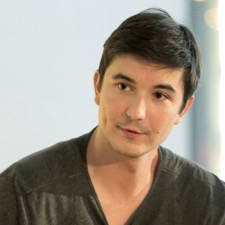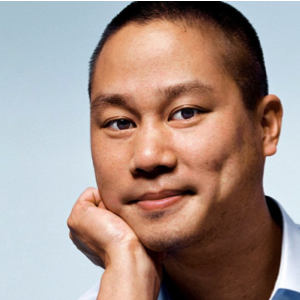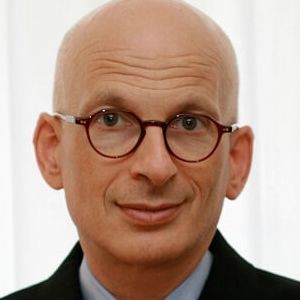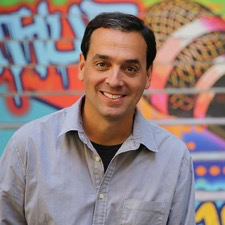Want to know what books Bobby Voicu recommends on their reading list? We've researched interviews, social media posts, podcasts, and articles to build a comprehensive list of Bobby Voicu's favorite book recommendations of all time.
1

From the bestselling author of The Black Swan and one of the foremost philosophers of our time, Nassim Nicholas Taleb, a book on how some systems actually benefit from disorder.
In The Black Swan Taleb outlined a problem; in Antifragile he offers a definitive solution: how to gain from disorder and chaos while being protected from fragilities and adverse events. For what he calls the "antifragile" is one step beyond robust, as it benefits from adversity, uncertainty and stressors, just as human bones get stronger when subjected to stress and tension.
Taleb stands... more From the bestselling author of The Black Swan and one of the foremost philosophers of our time, Nassim Nicholas Taleb, a book on how some systems actually benefit from disorder.
In The Black Swan Taleb outlined a problem; in Antifragile he offers a definitive solution: how to gain from disorder and chaos while being protected from fragilities and adverse events. For what he calls the "antifragile" is one step beyond robust, as it benefits from adversity, uncertainty and stressors, just as human bones get stronger when subjected to stress and tension.
Taleb stands uncertainty on its head, making it desirable, and proposing that things be built in an antifragile manner. Extremely ambitious and multidisciplinary, Antifragile provides a blueprint for how to behave-and thrive-in a world we don't understand and which is too uncertain for us to even try to understand. He who is not antifragile will perish. Why is the city state better than the nation state, why is debt bad for you, and why is almost everything modern bound to fail? The book covers innovation, health, biology, medicine, life decisions, politics, foreign policy, urban planning, war, personal finance, and economic systems. Throughout, the voice and recipes of the ancient wisdom from Phoenician, Roman, Greek, and Medieval sources are heard loud and clear. less 
Marvin Liaoeval(ez_write_tag([[250,250],'theceolibrary_com-leader-2','ezslot_7',164,'0','1']));
My list would be (besides the ones I mentioned in answer to the previous question) both business & Fiction/Sci-Fi and ones I personally found helpful to myself. The business books explain just exactly how business, work & investing are in reality & how to think properly & differentiate yourself. On... (Source)

James AltucherYou ask about success. To be successful you have to avoid being “fragile” – the idea that if something hurts you, you let collapse completely. You also have to avoid simply being resilient. Bouncing back is not enough. Antifragile is when something tries to hurt you and you come back stronger. That is real life business. That is real life success. Nassim focuses on the economy. But when I read... (Source)

Vlad TenevThe general concept is applicable to many fields beyond biology, for instance finance, economics and monetary policy. (Source)
2

Franz Kafka, frustrated with his living quarters and day job, wrote in a letter to Felice Bauer in 1912, “time is short, my strength is limited, the office is a horror, the apartment is noisy, and if a pleasant, straightforward life is not possible then one must try to wriggle through by subtle maneuvers.”
Kafka is one of 161 inspired—and inspiring—minds, among them, novelists, poets, playwrights, painters, philosophers, scientists, and mathematicians, who describe how they subtly maneuver the many (self-inflicted) obstacles and (self-imposed) daily rituals to get done the work... more Franz Kafka, frustrated with his living quarters and day job, wrote in a letter to Felice Bauer in 1912, “time is short, my strength is limited, the office is a horror, the apartment is noisy, and if a pleasant, straightforward life is not possible then one must try to wriggle through by subtle maneuvers.”
Kafka is one of 161 inspired—and inspiring—minds, among them, novelists, poets, playwrights, painters, philosophers, scientists, and mathematicians, who describe how they subtly maneuver the many (self-inflicted) obstacles and (self-imposed) daily rituals to get done the work they love to do, whether by waking early or staying up late; whether by self-medicating with doughnuts or bathing, drinking vast quantities of coffee, or taking long daily walks. Thomas Wolfe wrote standing up in the kitchen, the top of the refrigerator as his desk, dreamily fondling his “male configurations”. . . Jean-Paul Sartre chewed on Corydrane tablets (a mix of amphetamine and aspirin), ingesting ten times the recommended dose each day . . . Descartes liked to linger in bed, his mind wandering in sleep through woods, gardens, and enchanted palaces where he experienced “every pleasure imaginable.”
Here are: Anthony Trollope, who demanded of himself that each morning he write three thousand words (250 words every fifteen minutes for three hours) before going off to his job at the postal service, which he kept for thirty-three years during the writing of more than two dozen books . . . Karl Marx . . . Woody Allen . . . Agatha Christie . . . George Balanchine, who did most of his work while ironing . . . Leo Tolstoy . . . Charles Dickens . . . Pablo Picasso . . . George Gershwin, who, said his brother Ira, worked for twelve hours a day from late morning to midnight, composing at the piano in pajamas, bathrobe, and slippers . . .
Here also are the daily rituals of Charles Darwin, Andy Warhol, John Updike, Twyla Tharp, Benjamin Franklin, William Faulkner, Jane Austen, Anne Rice, and Igor Stravinsky (he was never able to compose unless he was sure no one could hear him and, when blocked, stood on his head to “clear the brain”).
Brilliantly compiled and edited, and filled with detail and anecdote, Daily Rituals is irresistible, addictive, magically inspiring.
less 
Alok KejriwalDaily Rituals - Book Review
"Sooner or later, Pritchett writes, "great men turn to be alike. They never stop working. They never lose a minute. It's very depressing".
Daily Rituals is a remarkable book. It chronicles the daily habits of artists, writers, composers.. see note https://t.co/tMUhBKmzkI (Source)

Bobby VoicuMason Currey’s "Daily Rituals" will show you how 161 of the most creative and inspiring minds in the world work. This book’s great to demolish the myth that artists don’t have a routine and they’re just waiting for inspiration to hit them.
As David Brook… https://t.co/4Owd29TQEm (Source)

B. J. NovakB. J. also recommended Daily Rituals by Mason Currey for anyone who would enjoy seeing the daily routines of legends like Steve Jobs, Charles Darwin, and Charles Dickens. "It is so reassuring to see that everyone has their own system, and how dysfunctional a lot of them are". (Source)
3

Why do you do what you do?
Why are some people and organizations more innovative, more influential, and more profitable than others? Why do some command greater loyalty from customers and employees alike? Even among the successful, why are so few able to repeat their success over and over?
People like Martin Luther King Jr., Steve Jobs, and the Wright Brothers might have little in common, but they all started with why. It was their natural ability to start with why that enabled them to inspire those around them and to achieve remarkable things.
more Why do you do what you do?
Why are some people and organizations more innovative, more influential, and more profitable than others? Why do some command greater loyalty from customers and employees alike? Even among the successful, why are so few able to repeat their success over and over?
People like Martin Luther King Jr., Steve Jobs, and the Wright Brothers might have little in common, but they all started with why. It was their natural ability to start with why that enabled them to inspire those around them and to achieve remarkable things.
In studying the leaders who've had the greatest influence in the world, Simon Sinek discovered that they all think, act, and communicate in the exact same way—and it's the complete opposite of what everyone else does. Sinek calls this powerful idea The Golden Circle, and it provides a framework upon which organizations can be built, movements can be lead, and people can be inspired. And it all starts with WHY.
Any organization can explain what it does; some can explain how they do it; but very few can clearly articulate why. WHY is not money or profit—those are always results. WHY does your organization exist? WHY does it do the things it does? WHY do customers really buy from one company or another? WHY are people loyal to some leaders, but not others?
Starting with WHY works in big business and small business, in the nonprofit world and in politics. Those who start with WHY never manipulate, they inspire. And the people who follow them don't do so because they have to; they follow because they want to.
Drawing on a wide range of real-life stories, Sinek weaves together a clear vision of what it truly takes to lead and inspire. This book is for anyone who wants to inspire others or who wants to find someone to inspire them. less 
Richard BransonToday is World Book Day, a wonderful opportunity to address this #ChallengeRichard sent in by Mike Gonzalez of New Jersey: Make a list of your top 65 books to read in a lifetime. (Source)

Tony RobbinsThe basis of this book is so important to anyone looking to increase their influence, profits or impact. People won't truly buy into a product, service, movement, or idea until they understand the WHY behind it. When you start with the why, everything else falls into place. This book is so impactful, I consider it required reading. (Source)

Tony HsiehOver the years he’s [] recommended well over 20 business books — including his own, the 2010 bestseller Delivering Happiness and you can always find what he’s currently reading atop his cluttered desk. Start with Why is amogst those titles. (Source)
4

Hillary Rodham Clinton | 4.22
“In the past, for reasons I try to explain, I’ve often felt I had to be careful in public, like I was up on a wire without a net. Now I’m letting my guard down.” —Hillary Rodham Clinton, from the introduction of What Happened
For the first time, Hillary Rodham Clinton reveals what she was thinking and feeling during one of the most controversial and unpredictable presidential elections in history. Now free from the constraints of running, Hillary takes you inside the intense personal experience of becoming the first woman nominated for president by a major... more “In the past, for reasons I try to explain, I’ve often felt I had to be careful in public, like I was up on a wire without a net. Now I’m letting my guard down.” —Hillary Rodham Clinton, from the introduction of What Happened
For the first time, Hillary Rodham Clinton reveals what she was thinking and feeling during one of the most controversial and unpredictable presidential elections in history. Now free from the constraints of running, Hillary takes you inside the intense personal experience of becoming the first woman nominated for president by a major party in an election marked by rage, sexism, exhilarating highs and infuriating lows, stranger-than-fiction twists, Russian interference, and an opponent who broke all the rules. This is her most personal memoir yet.
In these pages, she describes what it was like to run against Donald Trump, the mistakes she made, how she has coped with a shocking and devastating loss, and how she found the strength to pick herself back up afterward. With humor and candor, she tells readers what it took to get back on her feet—the rituals, relationships, and reading that got her through, and what the experience has taught her about life. She speaks about the challenges of being a strong woman in the public eye, the criticism over her voice, age, and appearance, and the double standard confronting women in politics.
She lays out how the 2016 election was marked by an unprecedented assault on our democracy by a foreign adversary. By analyzing the evidence and connecting the dots, Hillary shows just how dangerous the forces are that shaped the outcome, and why Americans need to understand them to protect our values and our democracy in the future.
The election of 2016 was unprecedented and historic. What Happened is the story of that campaign and its aftermath—both a deeply intimate account and a cautionary tale for the nation. less 
Bobby Voicu"I also have Hillary Clinton's book 'What Happened' on the go right now and love it ... although not specifically business related, it centres around female leadership and the challenges that we face. Really eye opening & inspiring!"
BRIANNE MILLER (Fo… https://t.co/QztUoai6Sx (Source)

Brianne MillerI also have Hillary Clinton's book 'What Happened' on the go right now and love it ... although not specifically business related, it centres around female leadership and the challenges that we face. Really eye opening & inspiring! (Source)
5

In an unorthodox approach, Georgetown University professor Cal Newport debunks the long-held belief that "follow your passion" is good advice, and sets out on a quest to discover the reality of how people end up loving their careers.
Not only are pre-existing passions rare and have little to do with how most people end up loving their work, but a focus on passion over skill can be dangerous, leading to anxiety and chronic job hopping. Spending time with organic farmers, venture capitalists, screenwriters, freelance computer programmers, and others who admitted to deriving great... more In an unorthodox approach, Georgetown University professor Cal Newport debunks the long-held belief that "follow your passion" is good advice, and sets out on a quest to discover the reality of how people end up loving their careers.
Not only are pre-existing passions rare and have little to do with how most people end up loving their work, but a focus on passion over skill can be dangerous, leading to anxiety and chronic job hopping. Spending time with organic farmers, venture capitalists, screenwriters, freelance computer programmers, and others who admitted to deriving great satisfaction from their work, Newport uncovers the strategies they used and the pitfalls they avoided in developing their compelling careers.
Cal reveals that matching your job to a pre-existing passion does not matter. Passion comes after you put in the hard work to become excellent at something valuable, not before. In other words, what you do for a living is much less important than how you do it.
With a title taken from the comedian Steve Martin, who once said his advice for aspiring entertainers was to "be so good they can't ignore you," Cal Newport's clearly written manifesto is mandatory reading for anyone fretting about what to do with their life, or frustrated by their current job situation and eager to find a fresh new way to take control of their livelihood. He provides an evidence-based blueprint for creating work you love, and will change the way you think about careers, happiness, and the crafting of a remarkable life.
less 
Reid HoffmanEntrepreneurial professionals must develop a competitive advantage by building valuable skills. This book offers advice based on research and reality--not meaningless platitudes-- on how to invest in yourself in order to stand out from the crowd. An important guide to starting up a remarkable career. (Source)

Seth GodinStop worrying about what you feel like doing (and what the world owes you) and instead, start creating something meaningful and then give it to the world. Cal really delivers with this one. (Source)

Daniel PinkDo what you love and the money will follow' sounds like great advice -- until it's time to get a job and disillusionment quickly sets in. Cal Newport ably demonstrates how the quest for 'passion' can corrode job satisfaction. If all he accomplished with this book was to turn conventional wisdom on its head, that would be interesting enough. But he goes further -- offering advice and examples that... (Source)
6

Arguably the greatest science fiction writer who ever lived, Isaac Asimov also possessed one of the most brilliant and original minds of our time. His accessible style and far-reaching interests in subjects ranging from science to humor to history earned him the nickname "the Great Explainer." I. Asimov is his personal story—vivid, open, and honest—as only Asimov himself could tell it.
Here is the story of the paradoxical genius who wrote of travel to the stars yet refused to fly in airplanes; who imagined alien universes and vast galactic civilizations while staying home to... more Arguably the greatest science fiction writer who ever lived, Isaac Asimov also possessed one of the most brilliant and original minds of our time. His accessible style and far-reaching interests in subjects ranging from science to humor to history earned him the nickname "the Great Explainer." I. Asimov is his personal story—vivid, open, and honest—as only Asimov himself could tell it.
Here is the story of the paradoxical genius who wrote of travel to the stars yet refused to fly in airplanes; who imagined alien universes and vast galactic civilizations while staying home to write; who compulsively authored more than 470 books yet still found the time to share his ideas with some of the great minds of our century. Here are his wide-ranging thoughts and sharp-eyed observations on everything from religion to politics, love and divorce, friendship and Hollywood, fame and mortality. Here, too, is a riveting behind-the-scenes look at the varied personalities—Campbell, Ellison, Heinlein, Clarke, del Rey, Silverberg, and others—who along with Asimov helped shape science fiction.
As unique and irrepressible as the man himself, I. Asimov is the candid memoir of an incomparable talent who entertained readers for nearly half a century and whose work will surely endure into the future he so vividly envisioned. less 
Bobby VoicuIn I, Asimov I’ve discovered a genuine happy person, someone that did what he loved his entire life. I discovered that one of the biggest authors of Science Fiction actually stopped writing fiction novels almost completely for 20 years. I discovered that he enjoyed writing mystery short stories a lot. And this shouldn’t surprise me since most of the books in his SF series are, actually,... (Source)
7

Bobby VoicuI found this quote in How to Enjoy Writing by Janet and Isaac Asimov and I realized I’m actually doing something akin those lines, even if I never defined it. (Source)
8

A fascinating, eye-opening and often shocking look at what lies ahead for the U.S. and the world from one of our most incisive futurists.
In his thought-provoking new book, George Friedman, founder of STRATFOR—the preeminent private intelligence and forecasting firm—focuses on what he knows best, the future. Positing that civilization is at the dawn of a new era, he offers a lucid, highly readable forecast of the changes we can expect around the world during the twenty-first century all based on his own thorough analysis and research. For example, The U.S.-Jihadist war will be... more A fascinating, eye-opening and often shocking look at what lies ahead for the U.S. and the world from one of our most incisive futurists.
In his thought-provoking new book, George Friedman, founder of STRATFOR—the preeminent private intelligence and forecasting firm—focuses on what he knows best, the future. Positing that civilization is at the dawn of a new era, he offers a lucid, highly readable forecast of the changes we can expect around the world during the twenty-first century all based on his own thorough analysis and research. For example, The U.S.-Jihadist war will be replaced by a new cold war with Russia; China’s role as a world power will diminish; Mexico will become an important force on the geopolitical stage; and new technologies and cultural trends will radically alter the way we live (and fight wars). Riveting reading from first to last, The Next 100 Years is a fascinating exploration of what the future holds for all of us.
For continual, updated analysis and supplemental material, go to www.Stratfor.com less 
Bobby VoicuA more centric version of Flashpoints: The Emerging Crisis in Europe (or the other way around). (Source)
9
Can humanity survive on a new world?
On Eos, the last survivors of the Long Winter face their greatest challenge yet--and race to unravel the deepest secrets of the grid. It's a journey across space and time and into humanity's past and future--with a twist you'll never forget. more Can humanity survive on a new world?
On Eos, the last survivors of the Long Winter face their greatest challenge yet--and race to unravel the deepest secrets of the grid. It's a journey across space and time and into humanity's past and future--with a twist you'll never forget. less 
Bobby VoicuOn the non-fiction front, I love A.G. Riddle's works and I just finished his last book in the The Long Winter trilogy: The Lost Colony. I wanted to read it so much that I preordered the book and I put the day of launch in my calendar, 5-6 months ago, after reading the second book. The entire trilogy is an interesting take on time travel, actually, but it only makes sense in the final book, this... (Source)
10

A disrespected ship, exiled to lonely patrol in the dark corners of the solar system.
A crew of screw-ups, written off by the entire fleet.
They're about to change everything.
If they don't blow themselves up first.
Join the Endurance's crew - a trigger-happy first officer, a hyperactive engineer, a shy covert operative, a conspiracy-spouting physicist, and a captain trying to earn his way back into his superiors' good graces - as they explore the galaxy by accident and trip their way into saving the world.
This anthology includes all... more A disrespected ship, exiled to lonely patrol in the dark corners of the solar system.
A crew of screw-ups, written off by the entire fleet.
They're about to change everything.
If they don't blow themselves up first.
Join the Endurance's crew - a trigger-happy first officer, a hyperactive engineer, a shy covert operative, a conspiracy-spouting physicist, and a captain trying to earn his way back into his superiors' good graces - as they explore the galaxy by accident and trip their way into saving the world.
This anthology includes all five Endurance novellas, as well as two bonus short stories. less 
Bobby Voicu"I just read the first 4 chapters (I’m writing this email on my flight back from Greece). It’s a Science Fiction book about a crew of misfits that makes, by mistake, Earth’s first interstellar flight. I bought it from one of BookBub’s promotions and it had good reviews. So I thought, why not? :)
Later edit: As I was reading it, I understood that the chapters are actually short stories related to... (Source)
Don't have time to read Bobby Voicu's favorite books? Read Shortform summaries.
Shortform summaries help you learn 10x faster by:
- Being comprehensive: you learn the most important points in the book
- Cutting out the fluff: you focus your time on what's important to know
- Interactive exercises: apply the book's ideas to your own life with our educators' guidance.
11

Pulitzer Prize-winner David Halberstam's bestseller takes you inside the football genius of Bill Belichick for an insightful profile in leadership. Bill Belichick's thirty-one years in the NFL have been marked by amazing success--most recently with the New England Patriots. In this groundbreaking book, David Halberstam explores the nuances of both the game and the man behind it. He uncovers what makes Bill Belichick tick both on and off the field. more Pulitzer Prize-winner David Halberstam's bestseller takes you inside the football genius of Bill Belichick for an insightful profile in leadership. Bill Belichick's thirty-one years in the NFL have been marked by amazing success--most recently with the New England Patriots. In this groundbreaking book, David Halberstam explores the nuances of both the game and the man behind it. He uncovers what makes Bill Belichick tick both on and off the field. less 
Ryan HolidayIn 2014, I read The Education of a Coach, a book about Bill Belichick which influenced me immensely (coincidentally, the Patriots have also read my book and were influenced by it). (Source)

Bobby VoicuThe first one is gentler with the coach, because the author had access to him personally. It also has only the first two Superbowls, because it stops in 2003. This means the writer didn’t know about the 2 biggest scandals that involved Belichick: Spygate and Deflategate. (Source)
Don't have time to read Bobby Voicu's favorite books? Read Shortform summaries.
Shortform summaries help you learn 10x faster by:
- Being comprehensive: you learn the most important points in the book
- Cutting out the fluff: you focus your time on what's important to know
- Interactive exercises: apply the book's ideas to your own life with our educators' guidance.








